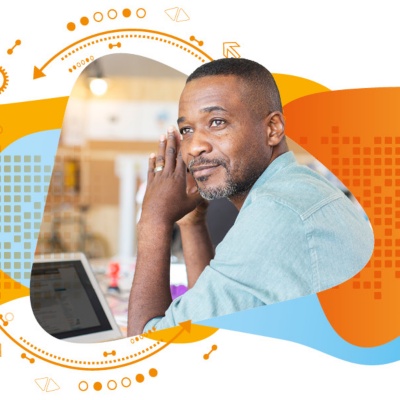Expert Perspectives on the Future of AI in Business and Society
Check out what the experts had to say about the future of AI at last year’s Workday Rising EMEA. Expect insights from Dr. Tomas Chamorro-Premuzic and many more.

Expert Perspectives on the Future of AI in Business and Society
Check out what the experts had to say about the future of AI at last year’s Workday Rising EMEA. Expect insights from Dr. Tomas Chamorro-Premuzic and many more.

In an era where AI and machine learning (ML) are increasingly becoming integral to our daily lives, understanding their implications is more critical than ever. At Workday Rising EMEA, experts from various fields gathered to discuss the transformative potential of AI and how to bridge the trust gap that currently exists in this domain. Here’s what they had to say:
“AI is a defining technology of our times,” said Dr. Tomas Chamorro-Premuzic, emphasising its permanence and influence. However, there’s a need to move past extreme views in mainstream media and adopt a nuanced understanding of AI’s capabilities and limitations. This balanced perspective is vital for workers and businesses to effectively leverage AI. Here are some of the highlights of the video:
AI in the workforce: Amplification and mitigation: Kathy Pham, Vice President AI & ML at Workday, highlights the historical context of managing work and finances, stressing the importance of understanding these processes in an analogue world before integrating AI. “The speed of technology and its ability to amplify our work is high,” she noted, suggesting that AI and ML can both enhance and challenge traditional business practices.
Reskilling for the AI era: The role of finance and HR leaders in transitioning workers from mundane tasks to more creative activities is crucial, according to Dr. Tomas Chamorro-Premuzic. However, this shift isn’t automatic. It requires active management and incentivisation. Upskilling is essential for leveraging AI’s next phase.
The trust gap and human-machine interaction: Filip Gilbert, Global Workday GTM & HR Technology Lead at Accenture, identified a trust gap concerning AI, centred around personal impact and employability. Building trust involves demonstrating continued investment in employees and making AI’s role in augmenting activities understandable and predictable. “Human-machine interaction […] will actually increase that trust,” he asserted. Interestingly, Dr. Tomas Chamorro-Premuzic pointed out that distrust towards AI often reflects existing organisational distrust. The disparity in AI perception between employees and leaders indicates a misalignment in strategic business goals, an issue that requires leadership intervention. New research by Workday shows a trust gap has formed at all levels of the workforce but especially among employees. You can read the whole report to learn how to close the trust gap.
Regulation, policy and AI implementation: Pham and Chandler Morse, Vice President Corporate Affairs at Workday, discussed the opportunities for organisations to collaborate with governments on AI regulation and policy. Such collaboration can lead to better user experiences and products. Morse also mentioned the importance of responsible, transparent AI implementation, highlighting consensus among industry leaders on best practices for bias mitigation, privacy and explainability.
These insights from industry leaders provide a valuable roadmap for navigating the complexities of AI in the workplace and society. By addressing the trust gap, fostering transparent and ethical AI use and prioritising skill development, we can harness AI's transformative power responsibly and effectively.
More Reading

The Trust Equation: Responsible AI in EMEA
This issue explores the importance of trust in AI adoption, featuring insights from EMEA's IT leaders, expert analysis on trust challenges, and strategies for responsible AI deployment. Discover how to bridge the trust gap and secure a successful digital transformation.

In the AI Age, Leaders Need to Build Trust… But How?
With great uncertainty surrounding AI, security and governance teams are operating in a sea of change. But one thing’s for certain: trust has never been more important.
By Martin Veitch, industry commentator

3 Insights to Help CIOs Navigate Evolving AI Regulations
The age of AI is causing huge disruption to the way the world does business – and so we can expect a raft of new regulations to define how to use AI responsibly. The question is, how can CIOs prepare and respond to those incoming regulations? Here are three key insights we think you need to know.